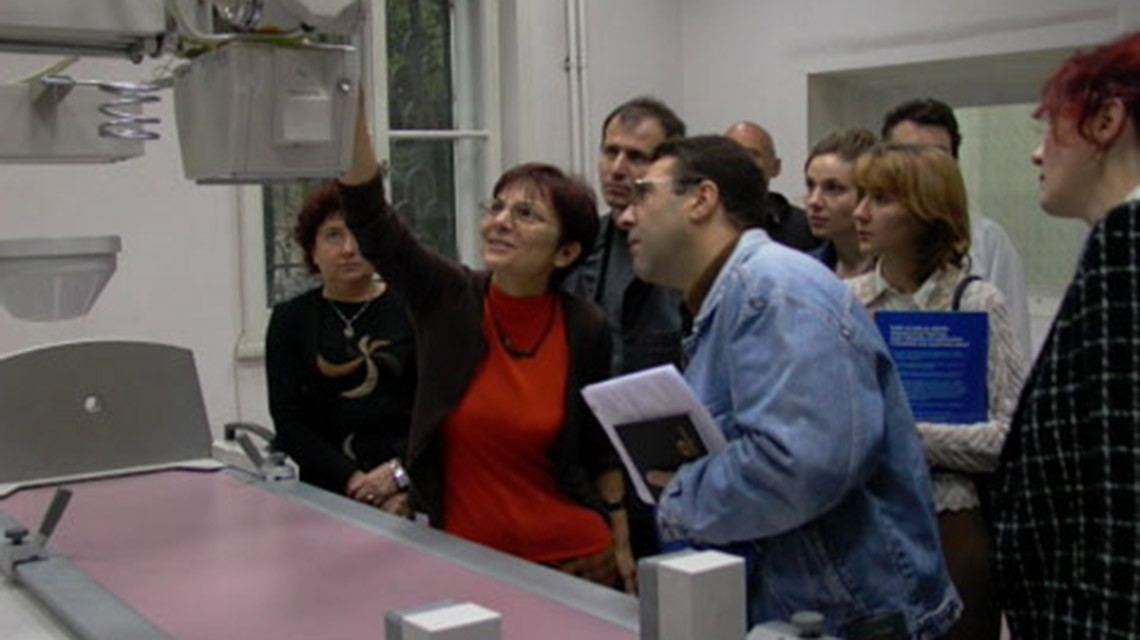The IAEA profiles employees to provide insight into the variety of career paths that support the Agency’s mission of Atoms for Peace and Development and to inspire and encourage readers, particularly women, to pursue careers in STEM (science, technology, engineering and mathematics) or STEM-adjacent fields. Read more profiles of women at the IAEA.
“I left the Royal Marsden Hospital in London with a suitcase full of scientific papers, because there were no laptops back then, and I wanted to bring all that knowledge with me.”
Jenia Vassileva speaks with passion when remembering her 1998 IAEA research fellowship in diagnostic radiology — a turning point in her 30-year career. Vassileva’s passion for medical physics remained undiminished in her role at the IAEA, working as a radiation protection specialist in the Radiation Protection of Patients Unit of the Department of Nuclear Safety and Security.
Growing up, Vassileva showed a marked tendency towards mathematics and physics from an early age. Her talents prompted her to study to become a nuclear engineer, an in-demand profession in 1970s Bulgaria, as the country was initiating its nuclear power programme. She pursued her studies at the Moscow Power Engineering Institute in the former Soviet Union.
On return to Bulgaria, she was working as an assistant professor in nuclear physics when she was given what she describes as a “life changing” opportunity to establish Bulgaria’s first academic programme in medical physics at Shumen University. With her knowledge of nuclear physics as a basis, Vassileva quickly gained expertise in medical physics under the mentorship of leading clinical medical physicists who shaped her passion in this specialized field. She also took courses offered at the faculty, carried out independent study and received international training.
“I did not even know that the profession of medical physicist existed. When I entered the field, it became my life,” she said.
Another career highlight was being selected for a three-month IAEA fellowship with the Diagnostic Physics Group at the Royal Marsden Hospital in London, where she developed a deeper knowledge in patient dosimetry and quality assurance in diagnostic radiology.
Vassileva likes to describe her professional life as a series of small steps and urges younger generations to stay resilient in the face of setbacks. "It is common to want to grow and develop our career fast, but often, life does not go that way,” she said. “We may feel discouraged when we do not see improvement, but we need to be grateful for the small steps and look forward with optimism towards realistic goals.”
“Nothing happens quickly,” Vassileva emphasized, pointing out that she received her PhD in Bulgaria in 2002 at a more advanced age than her peers. Her doctorate was based on her research in medical physics for diagnostic radiology and was the first on this subject in Bulgaria.
When Bulgaria started negotiations to join the European Union (EU), the country began harmonizing national legislation to EU conditions and directives. As a result, in 2003, Vassileva was invited by the director of the National Centre of Radiobiology and Radiation Protection (NCRRP) in the capital Sofia to establish a laboratory there dealing with radiation protection related to medical exposure.
As head of this new NCRRP department, Vassileva found herself at the helm of a laboratory that was driving all developments and the implementation of EU standards in patient dosimetry and quality assurance in Bulgaria, attracting top-tier international experts and technical support through EU special assistance programmes. The department also became a counterpart to the IAEA’s technical cooperation (TC) programme.









